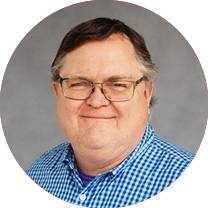She recalls the number of the bus she rode in when she attended Lewisville ISD schools. She and her future husband met on that school bus. They attended all the same schools and graduated from Lewisville High School.
“We were totally rural at the time, and we knew all of our neighbors, and there really were so few of us,” she said. “When my parents bought their property, there were 275 people living here.”
Now the town has more than 81,000 people, and Werner spends her spare time helping to lead the town by serving on Town Council, focusing on quality-of-life issues that include preserving green spaces and mature trees.
In May, Werner was elected to the Place 4 seat on Town Council in a four-candidate race. She fills a seat formerly held by Jim Engel, who was on council for six years. He died in July.
Prior to serving on council, she served on the planning and zoning commission for more than 3 years. She is a software engineer.
This interview has been edited for length and clarity.
How has Flower Mound changed in the time you have grown up here?
It’s completely changed in the way it looks for sure. It was completely rural. The only commercial business, besides farming, was a little bait shop called Griffis Corner, which was kind of like a convenience store, and that was the only place in town for a very long time.
Why did you want to run for council, and in what ways do you think what you learned from P&Z commission can help you now as a council member?
The reason I ran is to preserve residents' quality of life. That has always been what I strive for. Since I started out as a young person, speaking out against or for certain things, it’s always been about resident quality of life. I’ve always had a strong opinion that Flower Mound should continue to embrace what makes us special, and I think what we’re known for are high standards. Sometimes that’s a bad thing, but I think it’s a good thing. As a resident for the last 20-30 years, I’ve been reading the agenda packets, and when I got onto the planning and zoning [commission], I started looking at the packets for the commissions as well. I think the biggest thing I learned is how amazing our staff is, the knowledge that the staff has and that they’re there to help us make the best decision. That was probably the thing that helped me transition from the planning and zoning [commission]—relying on staff’s help for background information.
What is the town doing well to serve its residents?
I think we’ve tried very carefully to manage growth by encouraging businesses that residents want to maintain high standards when those businesses do come. [We need to be] helping keep our small, locally owned, unique businesses that are already here and not focusing on trying to increase high-density housing. I don’t believe that promotes our quality of life for the existing residents.
What are the town’s biggest challenges going forward?
Some of the challenges are keeping control of some of the things that affect us locally, because the state is trying to take away some of that control. I think it’s important that we try to keep as much control locally as possible. One of the other challenges is development out west in [Flower Mound Ranch and La Estancia], and it’s a challenge just because it's such a huge project, and it needs to be done right. ... We need to make sure that we are developing that correctly to benefit the entire town and the residents that live in that area as well.





